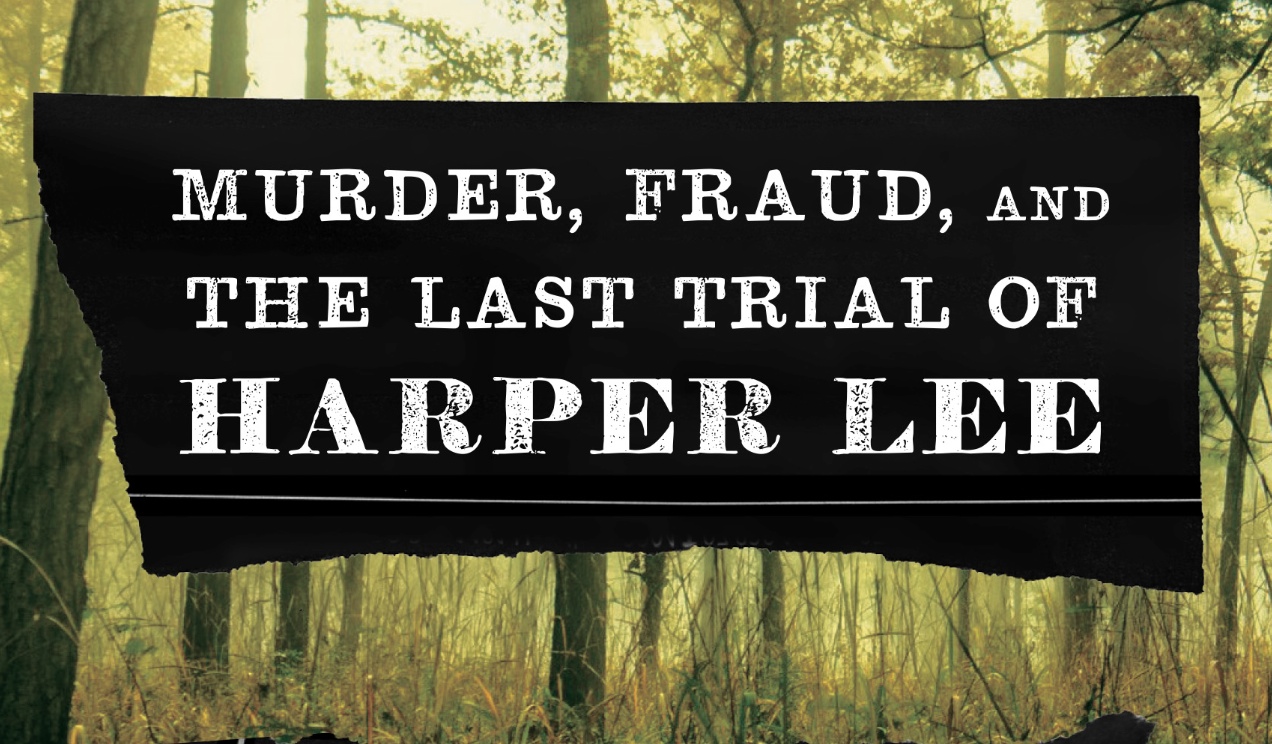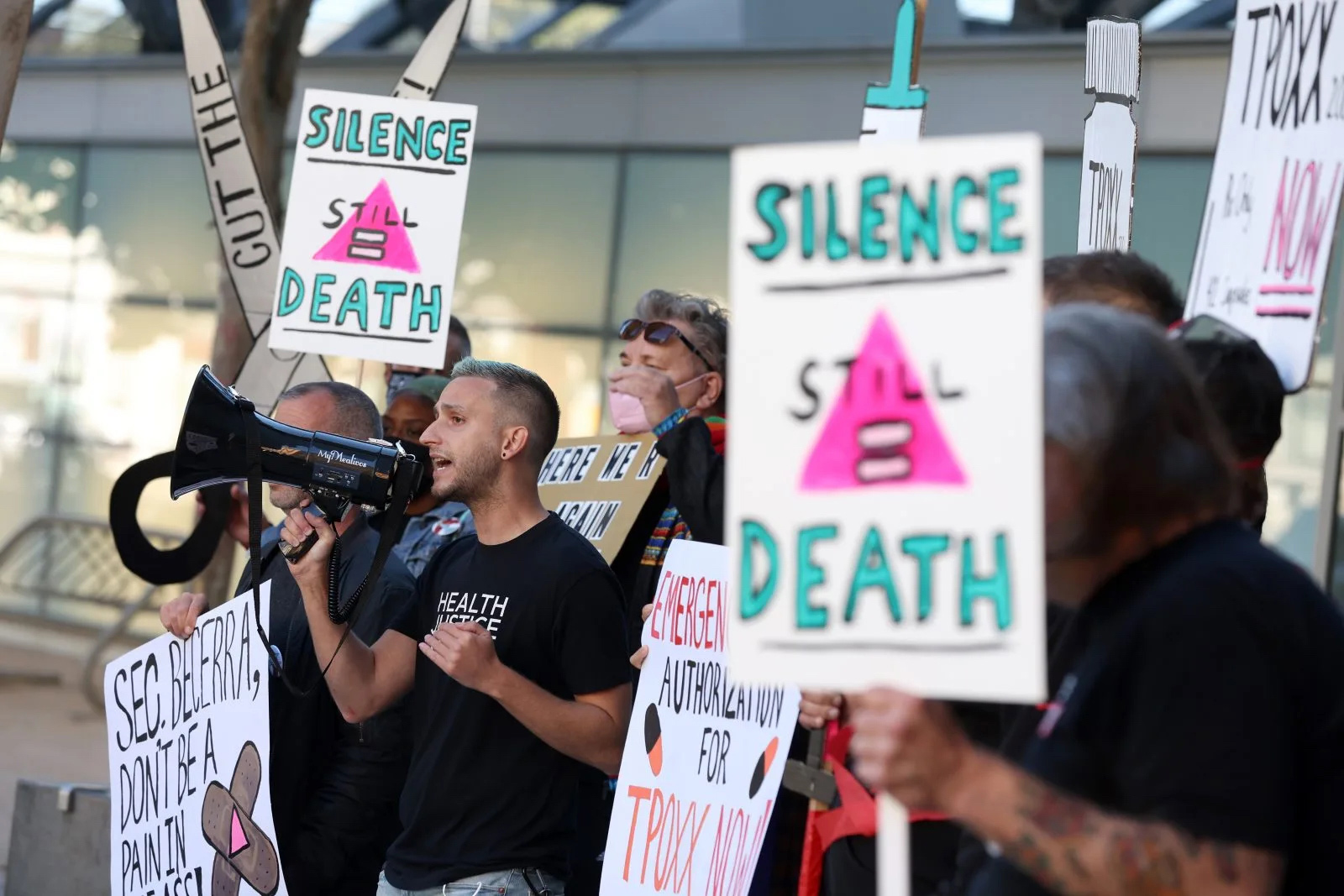Furious Hours: Murder, Fraud, and the Last Trial of Harper Lee

One of the most daunting challenges for a writer faced with a heap of notes, documents, and ideas is figuring out where to start and where to end. Casey Cep has chosen to begin her excellent book about Harper Lee’s frustrating last stab at a long-awaited followup to To Kill a Mockingbird by telling the very story that stymied Lee. She works her way toward Lee herself in the final third of Furious Hours, bringing clarity and compassion to this double project: an examination of a writer’s lifelong struggle with writing matched with a determined dive into the true-crime story Lee ultimately abandoned.
Furious Hours: Murder, Fraud, and the Last Trial of Harper Lee

Hardcover
$23.95
$26.95
Please enable javascript to add items to the cart.
Furious Hours: Murder, Fraud, and the Last Trial of Harper Lee
Casey Cep
Hardcover
$23.95
$26.95
Please enable javascript to add items to the cart.
The result, Cep’s first book, is a terrific read and a superbly researched, deeply sympathetic portrait of the author of one of America’s most beloved novels. Cep answers many questions about Lee but acknowledges that she can’t answer them all. Lee, she writes, “was so elusive that even her mysteries have mysteries.”
The story that Lee was drawn to in 1978 – eighteen years after Mockingbird’s publication – involves Willie Maxwell, a black Baptist preacher in Coosa County, Alabama, who was suspected of killing five of his family members over the course of seven years for insurance money. The string of murders ended not with a conviction but with three shots from an outraged vigilante at the funeral for the Reverend’s 16-year-old stepdaughter. Robert Burns, also black, was determined to make sure she was Maxwell’s last victim. Adding still more intrigue to a story that hardly needs any is the fact that Maxwell and Burns were both represented with remarkable success by the same suave, liberal white lawyer, Tom Radney.
Lee, who helped Truman Capote report on the sensational Kansas homicide case for In Cold Blood in 1959-60, knew from the get-go that the story she titled The Reverend would make for a riveting book. Cep points out that it was in many ways perfect material for her: The daughter and sister of lawyers, Lee had spent years in the gallery of the Monroe County Courthouse watching trials, and had studied criminal law herself (dropping out just six weeks shy of graduation). And of course, in Mockingbird, she had written unforgettably about a racially charged rape trial.
But as Cep’s account makes clear, the Reverend’s case was complicated, with subtle racial implications at many turns. Furious Hours leads us through each successive, mysterious death – wife #1, wife #2 (and her inconvenient, ailing first husband), older brother, nephew, adopted daughter of wife #3 – and the dozens of insurance policies totalling hundreds of thousands of dollars that Maxwell took out on each – always shortly before the end.
Cep chronicles the investigations and autopsies, which bafflingly failed to result in murder charges for all but the first of these deaths. (The last probably would have, had Maxwell lived.) This story adds a grim twist to the concept of “death benefits”: Tom Radney received fifty percent of the payouts for each of the many legal battles he won against insurance companies for Maxwell.
Cep’s book is greatly enriched by short histories on a variety of subjects, including serial killers, the insanity defense, small-town courthouses, voodoo (which Maxwell was rumored to practice), and the malign influence of George Wallace’s political career. The most notorious among the segregationist Democrats, Wallace “could find the race card in any deck and played it against everyone who dissented from his white-supremacist brand of populism.”
In a chapter on the evolution of the life insurance industry and the growth of insurance fraud, Cep notes that a history of pervasive racial bias against African-American policyholders worked in Maxwell’s favor when Radney dunned the frustrated insurance companies on his behalf. She points out the irony of the situation: “Never mind that [Radney’s] client was possibly the least likely poster boy for civil rights in the entire African-American population of Alabama.”
Cep devotes the middle section of her book to “The Lawyer.” In her portrait of this larger-than-life, sixth generation Alabamian, she sometimes goes overboard. Within the space of a few pages, she dubs Radney a “Casanova of the courtroom” who “stacked up acquittals like firewood.” His office, she writes, was “his own personal Louvre of Liberalism,” while his wife was “both Eleanor to his FDR and Jackie to his JFK.” Given this introduction, we’re not surprised to learn in the next section, “The Writer,” that Lee assigned the role of protagonist to Radney in both her nonfiction and fiction versions of The Reverend.
Which brings us, finally, to the protagonist of Cep’s book, Harper Lee. Cep’s compact, 130-page biography of the elusive author is a marvel of concision and clarity an and the best part of Furious Hours. It is also one of the most compassionate portraits of writer’s block and what Cep calls “unfinishedness” – the inability to complete a work — you’ll ever read.
The result, Cep’s first book, is a terrific read and a superbly researched, deeply sympathetic portrait of the author of one of America’s most beloved novels. Cep answers many questions about Lee but acknowledges that she can’t answer them all. Lee, she writes, “was so elusive that even her mysteries have mysteries.”
The story that Lee was drawn to in 1978 – eighteen years after Mockingbird’s publication – involves Willie Maxwell, a black Baptist preacher in Coosa County, Alabama, who was suspected of killing five of his family members over the course of seven years for insurance money. The string of murders ended not with a conviction but with three shots from an outraged vigilante at the funeral for the Reverend’s 16-year-old stepdaughter. Robert Burns, also black, was determined to make sure she was Maxwell’s last victim. Adding still more intrigue to a story that hardly needs any is the fact that Maxwell and Burns were both represented with remarkable success by the same suave, liberal white lawyer, Tom Radney.
Lee, who helped Truman Capote report on the sensational Kansas homicide case for In Cold Blood in 1959-60, knew from the get-go that the story she titled The Reverend would make for a riveting book. Cep points out that it was in many ways perfect material for her: The daughter and sister of lawyers, Lee had spent years in the gallery of the Monroe County Courthouse watching trials, and had studied criminal law herself (dropping out just six weeks shy of graduation). And of course, in Mockingbird, she had written unforgettably about a racially charged rape trial.
But as Cep’s account makes clear, the Reverend’s case was complicated, with subtle racial implications at many turns. Furious Hours leads us through each successive, mysterious death – wife #1, wife #2 (and her inconvenient, ailing first husband), older brother, nephew, adopted daughter of wife #3 – and the dozens of insurance policies totalling hundreds of thousands of dollars that Maxwell took out on each – always shortly before the end.
Cep chronicles the investigations and autopsies, which bafflingly failed to result in murder charges for all but the first of these deaths. (The last probably would have, had Maxwell lived.) This story adds a grim twist to the concept of “death benefits”: Tom Radney received fifty percent of the payouts for each of the many legal battles he won against insurance companies for Maxwell.
Cep’s book is greatly enriched by short histories on a variety of subjects, including serial killers, the insanity defense, small-town courthouses, voodoo (which Maxwell was rumored to practice), and the malign influence of George Wallace’s political career. The most notorious among the segregationist Democrats, Wallace “could find the race card in any deck and played it against everyone who dissented from his white-supremacist brand of populism.”
In a chapter on the evolution of the life insurance industry and the growth of insurance fraud, Cep notes that a history of pervasive racial bias against African-American policyholders worked in Maxwell’s favor when Radney dunned the frustrated insurance companies on his behalf. She points out the irony of the situation: “Never mind that [Radney’s] client was possibly the least likely poster boy for civil rights in the entire African-American population of Alabama.”
Cep devotes the middle section of her book to “The Lawyer.” In her portrait of this larger-than-life, sixth generation Alabamian, she sometimes goes overboard. Within the space of a few pages, she dubs Radney a “Casanova of the courtroom” who “stacked up acquittals like firewood.” His office, she writes, was “his own personal Louvre of Liberalism,” while his wife was “both Eleanor to his FDR and Jackie to his JFK.” Given this introduction, we’re not surprised to learn in the next section, “The Writer,” that Lee assigned the role of protagonist to Radney in both her nonfiction and fiction versions of The Reverend.
Which brings us, finally, to the protagonist of Cep’s book, Harper Lee. Cep’s compact, 130-page biography of the elusive author is a marvel of concision and clarity an and the best part of Furious Hours. It is also one of the most compassionate portraits of writer’s block and what Cep calls “unfinishedness” – the inability to complete a work — you’ll ever read.
To Kill a Mockingbird (Pulitzer Prize Winner)

Paperback
$8.99
Please enable javascript to add items to the cart.
To Kill a Mockingbird (Pulitzer Prize Winner)
Harper Lee
Paperback
$8.99
Please enable javascript to add items to the cart.
In order to set the stage for what happened with The Reverend, Cep walks us carefully through the creation of Mockingbird. The fact is, Lee didn’t do it on her first try, and she didn’t do it alone. She was lucky that dear friends staked her to a year’s patronage, enabling her to write fulltime. She was even luckier to find an enthusiastic agent, Maurice Crain, who saw something worth nurturing in her early short stories, and a remarkable (and rare) female editor, Tay Hohoff at Lippincott Publishers, who, over two years, helped Lee reshape her first crack at a novel — Go Set a Watchman — into To Kill a Mockingbird.
In order to set the stage for what happened with The Reverend, Cep walks us carefully through the creation of Mockingbird. The fact is, Lee didn’t do it on her first try, and she didn’t do it alone. She was lucky that dear friends staked her to a year’s patronage, enabling her to write fulltime. She was even luckier to find an enthusiastic agent, Maurice Crain, who saw something worth nurturing in her early short stories, and a remarkable (and rare) female editor, Tay Hohoff at Lippincott Publishers, who, over two years, helped Lee reshape her first crack at a novel — Go Set a Watchman — into To Kill a Mockingbird.
Go Set a Watchman

Paperback
$14.99
$16.99
Please enable javascript to add items to the cart.
Go Set a Watchman
Harper Lee
In Stock Online
Paperback
$14.99
$16.99
Please enable javascript to add items to the cart.
Under Hohoff’s editorial guidance, Lee solved several tricky problems, including point of view. By setting the novel in the 1930s, during Scout’s childhood, she avoided the intensely political debates over civil rights issues and allowed Atticus to be a hero rather the source of disillusion his grown daughter found when she returned home in Watchman. Cep explains that Hohoff wanted to free Lee’s fiction from its sanctimony, arguing that it was “best to convert readers to the cause of racial justice with a child’s loss of innocence than to condemn them through the disillusioned voice of an adult daughter.”
Cep’s admiration for her subject occasionally tilts toward hagiography, particularly in contrasting Capote’s often off-putting manner with “warm, empathetic” Lee’s excellent eye and ear for details in Kansas.
These skills would serve Lee well when researching The Reverend, but as Cep points out, “Nothing writes itself.” Compounding the challenge: By the time Lee settled down to pull all her material together, her trusted literary support team – agent, editor, and publisher – were all gone. By 1984, Capote would be, too.
Furious Hours is better than its title and subtitle, and ends on an elegiac note. We feel the heaviness of Lee’s inability to finish The Reverend, and Cep’s frustration at not having access to the author’s literary assets, “including whatever else exists of The Reverend.” The estate is sealed, closely guarded by Tonja Carter, the lawyer who took over handling Lee’s affairs after her sister Alice’s death at 103 in 2014. (Carter was behind the controversial publication of Watchman, about which Cep is mostly mum.)
Cep writes of Lee, “Somewhere along the line, she stopped doing two things destructive to her own well-being. One was drinking; the other was writing.” The publicity-averse author spent the last 29 years of her life living as modestly as she had before the phenomenal success of Mockingbird. She died in 2016 at age 89 in Monroeville, where she was born.
In an author’s note Cep writes: “I wish that she’d been the one to tell you this story, but I’m honored to pick up where she left off.”
Lucky Lee, yet again. And lucky us.
Under Hohoff’s editorial guidance, Lee solved several tricky problems, including point of view. By setting the novel in the 1930s, during Scout’s childhood, she avoided the intensely political debates over civil rights issues and allowed Atticus to be a hero rather the source of disillusion his grown daughter found when she returned home in Watchman. Cep explains that Hohoff wanted to free Lee’s fiction from its sanctimony, arguing that it was “best to convert readers to the cause of racial justice with a child’s loss of innocence than to condemn them through the disillusioned voice of an adult daughter.”
Cep’s admiration for her subject occasionally tilts toward hagiography, particularly in contrasting Capote’s often off-putting manner with “warm, empathetic” Lee’s excellent eye and ear for details in Kansas.
These skills would serve Lee well when researching The Reverend, but as Cep points out, “Nothing writes itself.” Compounding the challenge: By the time Lee settled down to pull all her material together, her trusted literary support team – agent, editor, and publisher – were all gone. By 1984, Capote would be, too.
Furious Hours is better than its title and subtitle, and ends on an elegiac note. We feel the heaviness of Lee’s inability to finish The Reverend, and Cep’s frustration at not having access to the author’s literary assets, “including whatever else exists of The Reverend.” The estate is sealed, closely guarded by Tonja Carter, the lawyer who took over handling Lee’s affairs after her sister Alice’s death at 103 in 2014. (Carter was behind the controversial publication of Watchman, about which Cep is mostly mum.)
Cep writes of Lee, “Somewhere along the line, she stopped doing two things destructive to her own well-being. One was drinking; the other was writing.” The publicity-averse author spent the last 29 years of her life living as modestly as she had before the phenomenal success of Mockingbird. She died in 2016 at age 89 in Monroeville, where she was born.
In an author’s note Cep writes: “I wish that she’d been the one to tell you this story, but I’m honored to pick up where she left off.”
Lucky Lee, yet again. And lucky us.
The post Furious Hours: Murder, Fraud, and the Last Trial of Harper Lee appeared first on B&N Reads.
Original source: https://www.barnesandnoble.com/blog/furious-hours-murder-fraud-and-the-last-trial-of-harper-lee/



 Stability is to the Spanish what freedom is to Americans. (This is a stereotype, but life abroad inures you to stereotypes you may have rejected as a fair-minded observer from afar.) Where American parents might advise their children to go their own way, to do whatever will make them happy, their Spanish counterparts are more […]
Stability is to the Spanish what freedom is to Americans. (This is a stereotype, but life abroad inures you to stereotypes you may have rejected as a fair-minded observer from afar.) Where American parents might advise their children to go their own way, to do whatever will make them happy, their Spanish counterparts are more […] For fifty years the historian and novelist Marina Warner has been teaching us how to see the histories that lie behind myths and symbols, and especially how to interpret the meanings secreted in images projected by, and onto, women. Her first book, published in 1972, was a biography of “a wicked woman in power,” the […]
For fifty years the historian and novelist Marina Warner has been teaching us how to see the histories that lie behind myths and symbols, and especially how to interpret the meanings secreted in images projected by, and onto, women. Her first book, published in 1972, was a biography of “a wicked woman in power,” the […] When I visited Ukraine in July 2016, only one way remained across the Siverskyi Donets River to the separatist Luhansk People’s Republic: a bridge half destroyed by shelling, passable only on foot. From Stanytsia Luhanska, a Don Cossack settlement, elderly people and mothers with young children traversed the bridge, hauling carts of tomatoes and cucumbers […]
When I visited Ukraine in July 2016, only one way remained across the Siverskyi Donets River to the separatist Luhansk People’s Republic: a bridge half destroyed by shelling, passable only on foot. From Stanytsia Luhanska, a Don Cossack settlement, elderly people and mothers with young children traversed the bridge, hauling carts of tomatoes and cucumbers […] In 1627–1628 Charles I of England bought an enormous art collection from Vincenzo Gonzaga of Mantua. The Gonzaga dynasty had hosted Andrea Mantegna and Giulio Romano at their court, collected antique statues, and bought new works by Raphael, Titian, Caravaggio, and Correggio. The Gonzagas’ brilliant but imprudent expenditures had landed them in financial trouble. Charles’s […]
In 1627–1628 Charles I of England bought an enormous art collection from Vincenzo Gonzaga of Mantua. The Gonzaga dynasty had hosted Andrea Mantegna and Giulio Romano at their court, collected antique statues, and bought new works by Raphael, Titian, Caravaggio, and Correggio. The Gonzagas’ brilliant but imprudent expenditures had landed them in financial trouble. Charles’s […] To be an American is to live under a regime of profound inequalities, which result from the same concentrations of wealth that make the country an international power. Health care is one of the points at which those inequalities converge most catastrophically. As the journalist Steven Thrasher writes in his recent book The Viral Underclass, […]
To be an American is to live under a regime of profound inequalities, which result from the same concentrations of wealth that make the country an international power. Health care is one of the points at which those inequalities converge most catastrophically. As the journalist Steven Thrasher writes in his recent book The Viral Underclass, […]
 A Broken Blade By Melissa Blair (audio review)
A Broken Blade By Melissa Blair (audio review)





